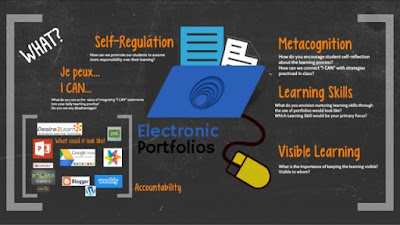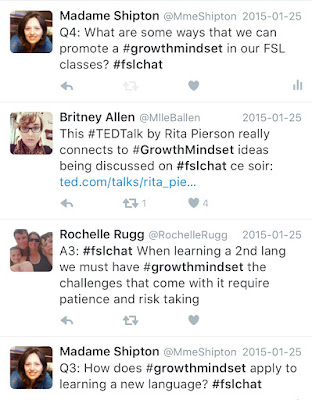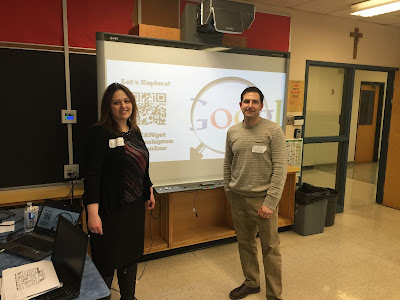Are you an EdCamper? As an EdCamp newbie, I continue to be impressed by the rich conversation and awesome networking opportunities that naturally present themselves when passionate teachers come together in this way. Driven by a love for learning, TCDSB EdCampers set aside their personal lives on a recent Saturday morning to share, listen and learn. Guided conversation were facilitated by teachers for teachers on topics that were meaningful and relevant to a huge range of educators.
Circle set-up promoted authentic conversations.
Both Dan and I facilitated sessions with a focus on growth mindset, the power of YET and student-driven portfolios. Our prezis can be viewed at the links below. That being said, keeping with EdCamp-style, conversations were fluid and re-direction welcomed which led to the most amazing sharing and connecting.
We chatted ways in which to promote risk-taking and goal-setting, exploring the idea of failing forward and appreciating that the path to success most certainly isn't always a straight one. We also discussed Carol Dweck's experiences and made connections to those similar in our own daily teaching practice.
Talk of goal-setting led way to reflecting on our student self-reflections. A classroom consensus seemed to be recognizing the value of self-reflections and that although we sometimes forget to fit in time for it, student self-evaluation is key to goal-setting and determining next steps. Additionally, some participants questioned whether self-reflections should focus on curriculum-based success criteria or learning skills or a combination of the two.
Finally, where does feedback fit in? Does our praise really make a difference?
We explored and discussed feedback at length, with a focus on how to shift our own mindset to praise the process rather than the ability in order to promote student grit and resilience.
Do you foresee any disadvantages of praising effort?
Of course, teachers cannot not discuss resources!
We shared a "few of our favourite things" when it came to resources related to Growth mindset in both English and French.
In Dan's session, participants contributed to a graffiti wall of sharing as they discussed student-driven portfolios, student-led conferences and making connections to "All About Me".
What a great day of sharing and learning!
With door prizes to boot! Thanks @TCDSB21C.
Looking forward to next year!
































